MQ2533四连杆门座起重机人字架结构设计(含CAD图,SolidWorks三维图)
无需注册登录,支付后按照提示操作即可获取该资料.
MQ2533四连杆门座起重机人字架结构设计(含CAD图,SolidWorks三维图)(任务书,开题报告,论文说明书11000字,CAD图3张,SolidWorks三维图1张)
摘 要
门座起重机是海港以及内河港的主要装卸机械之一,由于长期处于繁重的工作状态,对其结构的力学分析及优化改进在门座起重机的发展过程中一直处于重要的地位。人字架是大多数门座起重机回转部分的主要支撑结构,其结构设计的安全稳定是门座起重机安全运行的重要基础。
本文以25t-33m港口门座起重机为例,叙述门座起重机的总体设计和人字架结构的设计,其中包括以下步骤:
1)总体设计。在CAD中采用作图法完成变幅货物水平位移补偿系统设计和臂架自重平衡补偿系统设计;参考同类型产品设计,估计起重机各主要部件及整机的质量和质心位置;然后借助Excel软件分析起重机主要载荷情况并确定载荷大小;然后以此为依据计算车轮的支承反力、确定车轮数目;最后校核整机的抗倾覆稳定性。
2)人字架结构设计。首先参考同类型产品设计初定人字架各板件的截面尺寸;然后利用solidworks软件对人字架结构仿真建模;之后用workbench软件对该模型进行有限元分析,求解出应力及挠度分布,进行强度和静刚度校核。
关键词:门座起重机;总体设计;人字架结构设计;仿真建模;有限元分析
Abstract
As one of the main handling machine used in the harbor and port, the portal crane has been in a working condition of frequent and heavy load for a long time, which means the importance of structural stress research and optimization during the developing process of portal crane. The propeller strut is the main supporting structure of the rotary part in a portal crane, the safety and stability of which lays an important foundation for the safe operation of a portal crane.
This paper takes the MQ2533 portal crane as an example to describe the general process of portal crane’s design, and the design of propeller strut. It includes the following steps:
1) The overall design. Firstly, this paper finished the design of the horizontal displacement compensation system and the boom weight balancing system. Secondly, this paper estimated weight and mass center of the main components and the whole machine with the reference to the same type of product design. Then, this paper analyzed the main load conditions and determine the magnitude of loads with the assistance of Excel software. Finally, this paper checked the anti-tipping stability of the whole machine.
2) The design of the propeller strut. Firstly, this paper initially determined the section size of each plate in the propeller strut with the reference to the same type of product design. Secondly, this paper finished the modeling and simulation of propeller strut with the assistance of Solid works software. Finally, this paper finished the finite element analysis of the model with the assistance of workbench software, from which we can get the solution of stress and deflection distribution ,making it possible to finish the Strength and static stiffness check.
Keywords: Portal crane; The overall design; Propeller strut; Simulation modeling; finite element analysis
2.1 主要技术参数的确定
起重机械的主要技术参数是表征起重机械性能特征的主要指标,也是设计起重机械的主要技术依据。本次设计的MQ2533门座起重机主要性能参数见表2-1。
表2-1 主要技术参数表
项目名称 技术参数
起重量 25t(抓斗) 40t(吊钩)
工作幅度 最大/最小 33m/9.5m 25m/9.5m
起升高度 轨上/轨下 19m/15m 28m/15m
机构工作速度工作级别 起升机构 M8 50m/min 25m/min
变幅机构 M7 45m/min
回转机构 M7 1.2r/min
运行机构 M4 25m/min
风速 工作最大风速 20m/s
非工作最大风速 55m/s
轨距/基距 10.5m/10.5m
工作时最大轮压 250KN
最大尾部回转半径 9m
轨道型号 QU80
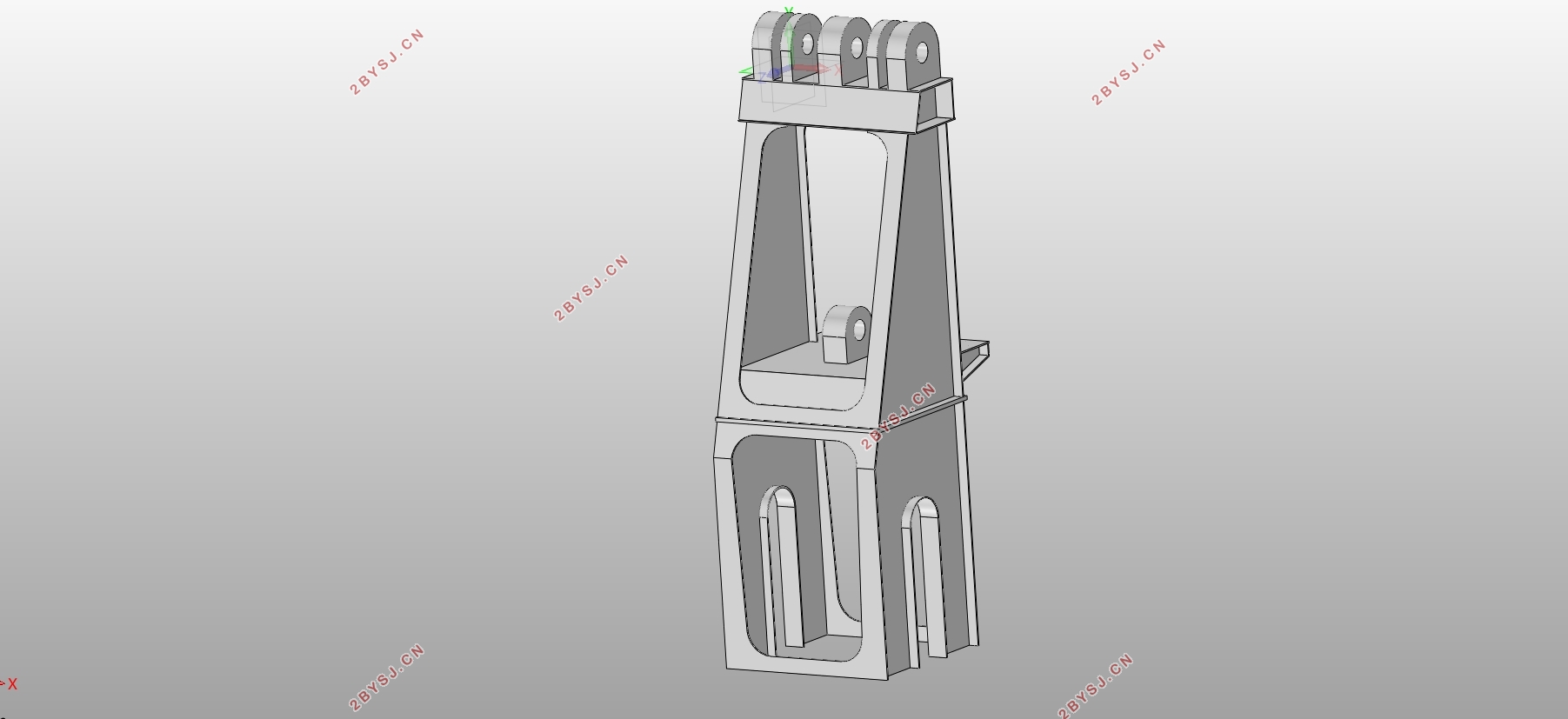
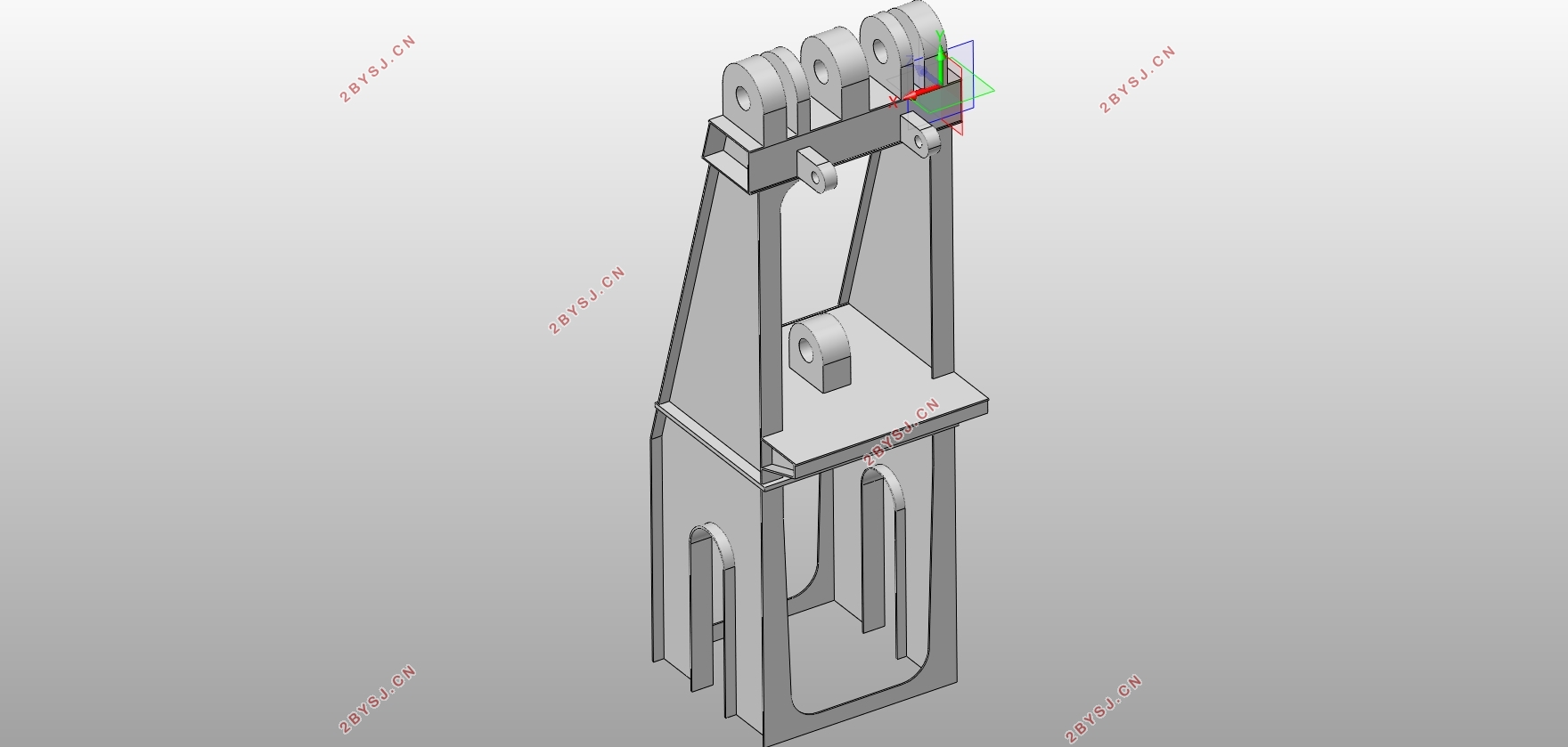
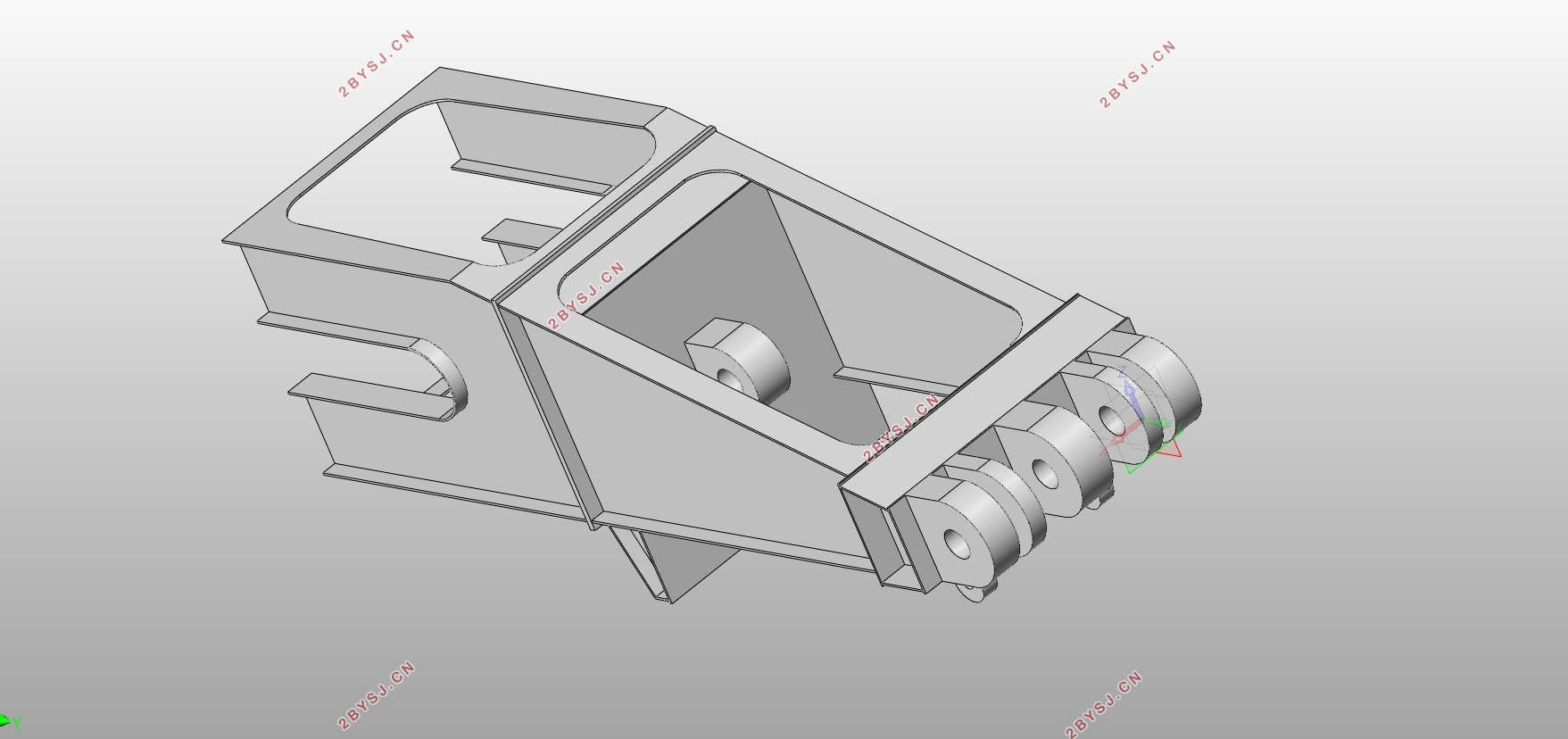
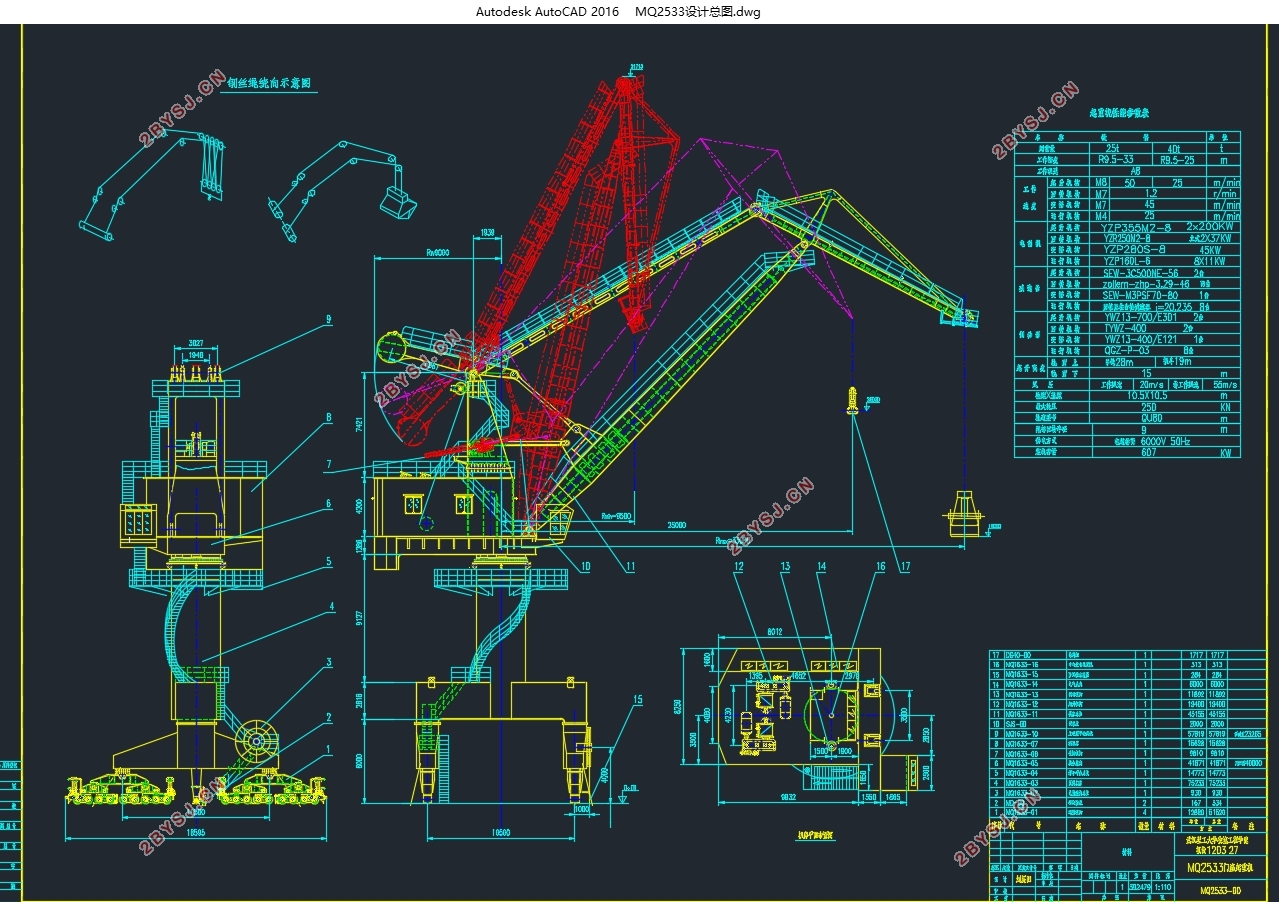
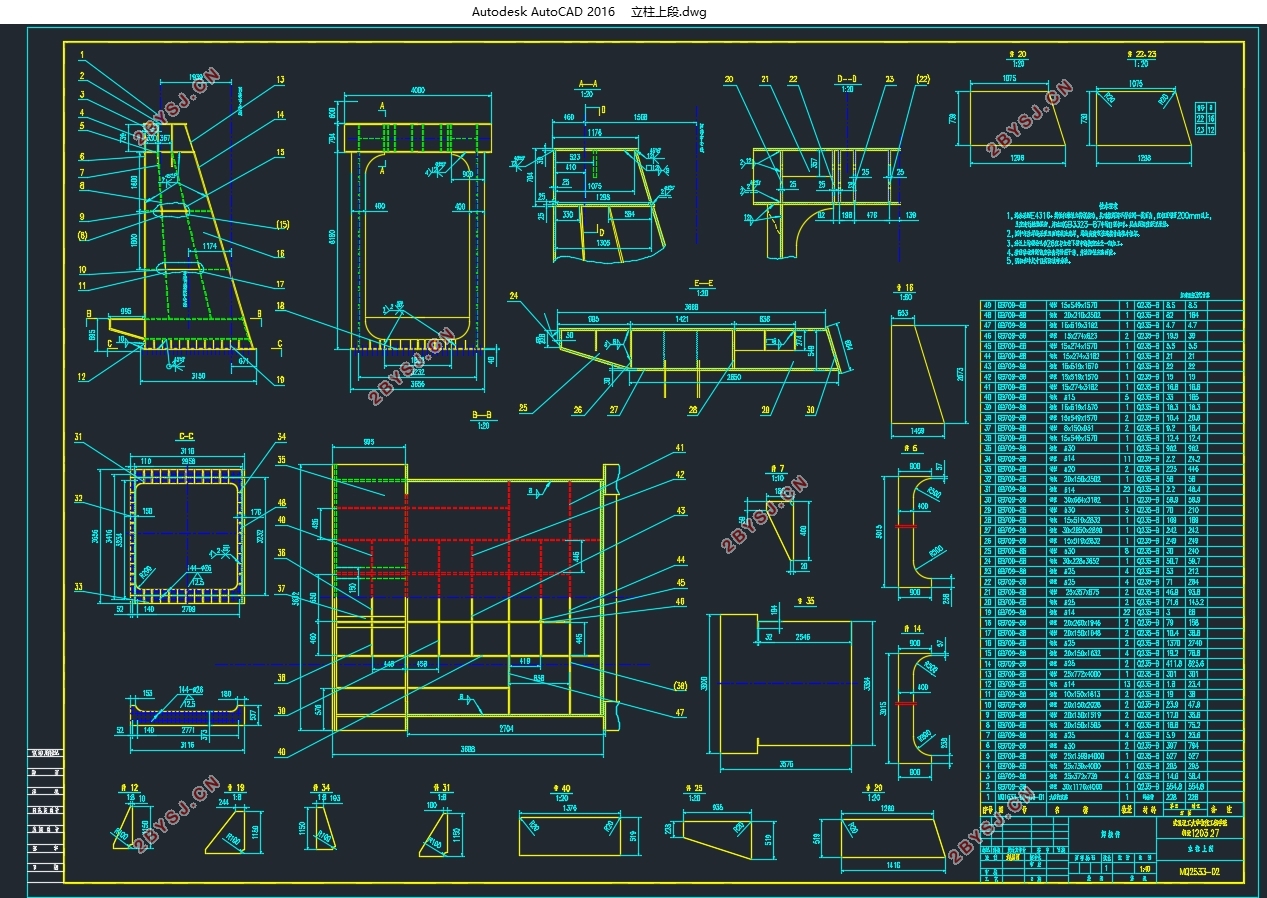
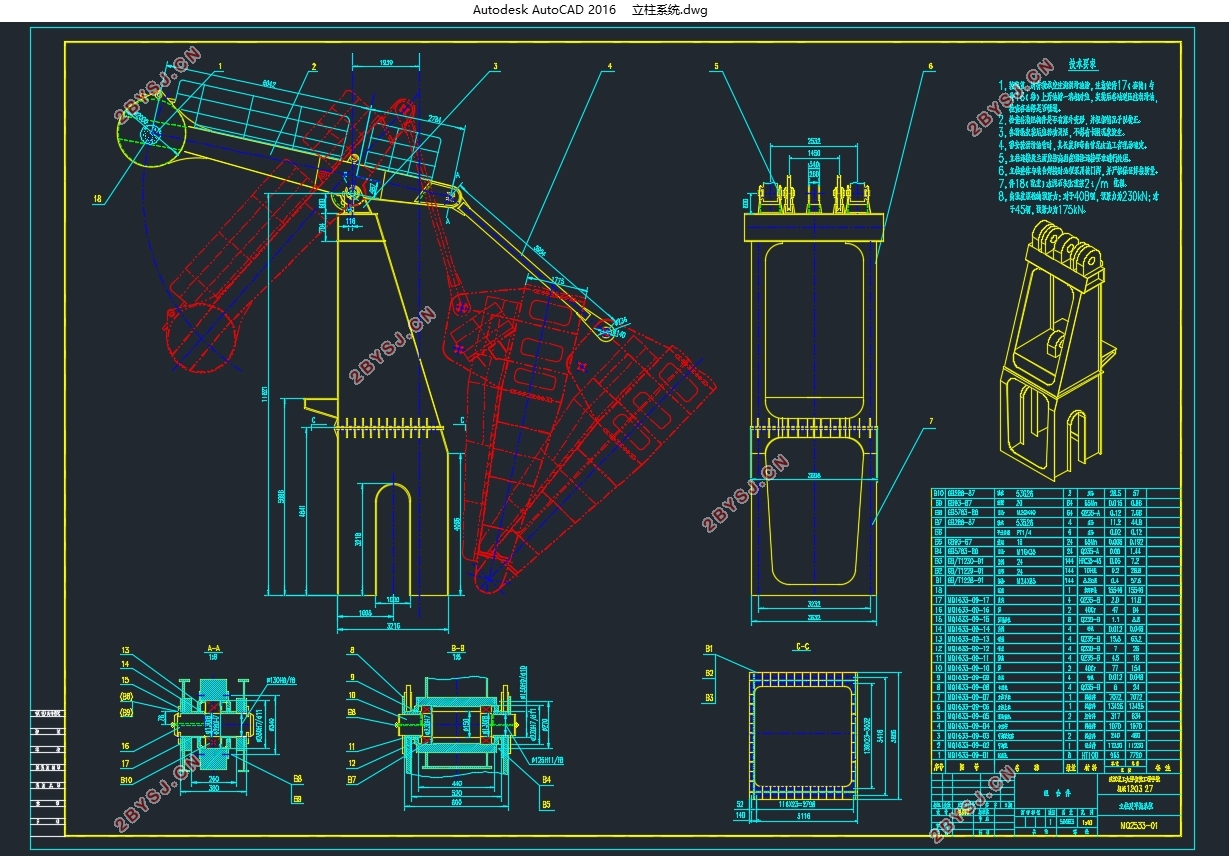

目 录
第1章 绪论 1
1.1课题研究的目的及意义 1
1.2 课题研究主要内容 1
第2章 总体设计 3
2.1 主要技术参数的确定 3
2.2 确定主要工作机构和金属结构的形式 4
2.2.1 确定主要工作机构的形式 4
2.2.2 确定金属结构的形式 9
2.3 货物水平位移系统——刚性四连杆组合臂架方案的设计 12
2.3.1 设计过程 12
2.3.2 货物水平位移系统的校验 14
2.4臂架自重平衡——活对重及平衡系统的设计 18
2.4.1 设计过程 18
2.4.2臂架平衡系统的校验 20
2.5 载荷计算 24
2.5.1 额定起升载荷 计算 29
2.5.2自重载荷 计算 29
2.5.3水平惯性力的计算 30
2.5.4起重机风载荷 36
2.6门座起重机起重机刚性支承的支承反力与轮压的计算 38
2.6.1工况Ⅰ 起重机工作状态下最大幅度满载时 39
2.6.2工况Ⅱ最小幅度空载起重机大车运行时 41
2.6.3工况Ⅲ 起重机非工作状态下最小幅度空载时 43
2.6.4 支承反力与轮压计算小结 44
2.7 门座起重机抗倾覆稳定性校验 44
2.7.1倾覆线的确定 44
2.7.2 校验过程 44
第3章人字架结构的设计及计算 48
3.1 设计思路的确定 48
3.2 人字架结构solidworks仿真建模 48
3.3人字架模型workbench有限元分析 50
3.3.1 材料参数 50
3.3.2 划分网格 50
3.3.3边界约束条件的定义 51
3.3.4受力分析及加载 51
3.3.5人字架结构强度、刚度分析 53
第4章 总结与展望 57
4.1 全文总结 57
4.2 全文展望 57
4.3经济性分析 58
参考文献 59
致谢 60
